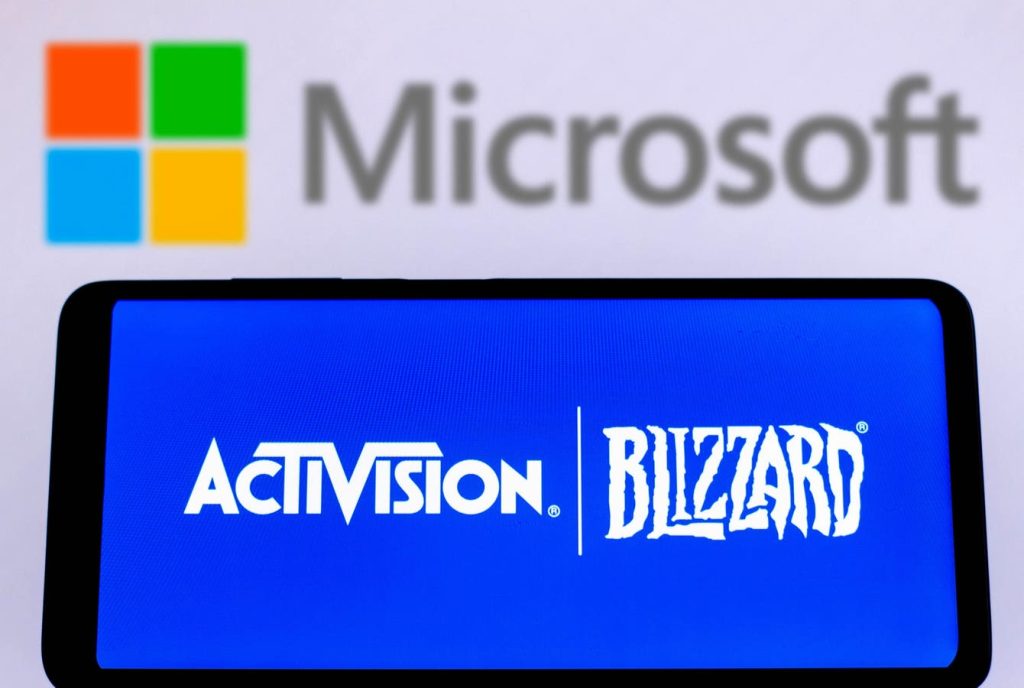Key Takeaways
- Microsoft has been cleared by the UK’s Competition and Markets Authority to complete their acquisition of Activision Blizzard
- It will allow them to finalize the $69 billion transaction, and will see them take ownership of franchises such as Call of Duty and Warcraft
- As part of the concessions made with the CMA, Microsoft will spin off the cloud gaming assets division to Ubisoft
It had to pass through the regulatory gauntlet for a number of different countries, including the US, UK and Europe, but Microsoft’s major acquisition of Activision Blizzard has now been finalized.
It was the UK’s Competition and Markets Authority (CMA) who were the last holdout in approving the deal, over concerns that the acquisition would reduce competition for gamers. With the CMA now satisfied with the deal after some concessions were made, Microsoft is free to go ahead and complete the $69 billion deal.
Here’s the latest of the acquisition and what it might mean for investors.
Microsoft cleared to complete acquisition of Activision Blizzard
Content has become one of the major battlegrounds for tech, and it’s becoming more and more intertwined with entertainment. While it may be TV and movies that first comes to mind when we think of content, the gaming industry is bigger than all of it.
In fact, revenue from the gaming industry is now five times higher than the global movie box office, bigger than the entire music industry and the big five American sports leagues.
Gaming has taken over, and Microsoft understandably wants to increase their share of the pie.
To help bolster their already strong gaming credentials, Microsoft first made the bid to acquire Activision Blizzard back in 2022. The company holds some of the most valuable gaming IP in existence, including the Call of Duty franchise, Warcraft, Crash Bandicoot, Guitar Hero, Tony Hawk’s, Diablo and Candy Crush.
Regulators raise concerns of deal
The deal would massively bolster Microsoft’s gaming, in particular regarding the Call of Duty games which is the tenth highest grossing media franchise of all time. That list isn’t just games, with COD generating more revenue than IP like Batman, Spiderman, the Avengers and Looney Tunes.
It’s the issue of COD that had regulators worried, with concerns that Microsoft would look to make the series exclusive to Xbox. They felt this would have the potential to materially damage the access for consumers, with Sony Playstation gamers or those on other peripherals such as the Nintendo Switch, potentially frozen out unless they purchased more expensive hardware.
Microsoft has been working with UK’s CMA, as well as their US counterparts the Federal Trade Commission (FTC) and the European Commission to help massage the deal through.
In order to get it past the regulators, Microsoft has made a number of promises and concessions, including a commitment to keep Call of Duty available on other platforms. Though that same commitment wasn’t extended to other Activision Blizzard titles.
The final issue with the CMA has surrounded the cloud gaming division, which allows gamers to stream games from cloud servers, removing the need for expensive hardware and allowing games to be played directly on devices like phones and TVs.
Microsoft has managed to satisfy the CMA by spinning off the cloud gaming rights to Ubisoft and will not take ownership of these rights for any existing Activision Blizzard titles, or new games released in the next 15 years.
How the stock reacted
Microsoft stock closed down around 1% on Friday, though it finished the week up around 1%. After a challenging 2022, the company has seen some major growth in its stock price this year, with the price up almost 37% year to date.
Not only that, but the stock has hit an all-time high this year, topping $358 on July 18th. That’s even higher than the peak of the pandemic bull run which hit its top in late 2021.
The bottom line
Microsoft’s acquisition of Activision Blizzard lays down the gaming gauntlet for an industry that is underappreciated by much of the general public, despite being the biggest industry within the entertainment sector.
It shows that the already competitive landscape is going to continue to see major investment, and the growth of cloud gaming could pave the way to make gaming even more accessible. For investors, that’s a recipe for some potentially attractive returns.
Read the full article here




